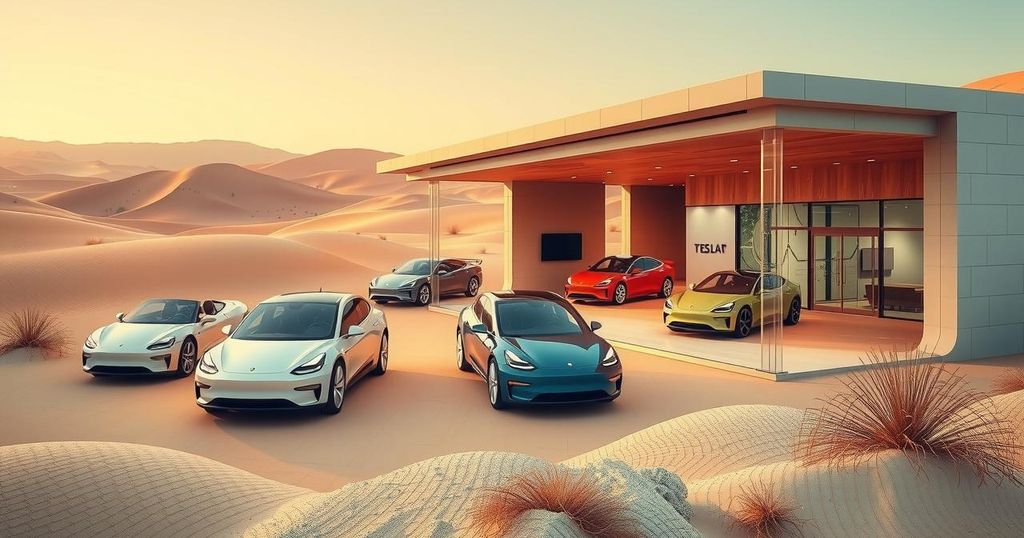BYD Plans Major Saudi Expansion Following Tesla’s Market Entry

- BYD aims to expand its showrooms in Saudi Arabia from three to ten by 2026.
- The expansion fits into Saudi Arabia’s Vision 2030 for 30% EV adoption by 2030.
- High costs and limited infrastructure remain hurdles for EV adoption in Saudi Arabia.
- Saigot sees Tesla’s market introduction as a boost for consumer awareness on EVs.
- Half of Saudis are reportedly considering purchasing electric vehicles.
BYD’s Strategic Expansion Plans in Saudi Arabia
Chinese electric vehicle manufacturer BYD is setting ambitious goals for its expansion in Saudi Arabia, particularly following the recent entry of Tesla into the market. According to Jerome Saigot, managing director of BYD in the Kingdom, the company intends to increase its number of showrooms from three to ten locations by the close of 2026. This strategy is part of a broader initiative that aligns with Saudi Arabia’s Vision 2030, which aims for 30 percent of all vehicles in the country to be electric by the year 2030.
Navigating the Complex Saudi Market
Saigot emphasized the complexities of the Saudi market during a recent interview with Bloomberg, stating that rapid action and ambitious thinking are essential for success. He stated, “We are not here to stay at 5 or 10,000 cars a year,” signaling a clear intent to penetrate the market more deeply. The competitive landscape is indicating strong financial backing from Saudi Arabia’s Public Investment Fund, which has made substantial investments in the electric vehicle sector by supporting brands such as Lucid Motors and establishing local operations like Ceer, along with pushing for the necessary infrastructure to support electric vehicles.
Challenges and Opportunities in the EV Market
Despite the high ambitions, the adoption of electric vehicles remains challenging in Saudi Arabia, where EV sales currently represent roughly 1 percent of the total market. Factors such as the high cost of electric cars, inadequate charging infrastructure, and extreme weather conditions pose significant barriers to widespread adoption, as reported by PwC. However, Saigot remarked that the presence of Tesla in the Kingdom is beneficial, enhancing consumer awareness about electric vehicles. He believes that Tesla’s marketing efforts will indirectly benefit BYD, saying, “The more Tesla communicates on marketing, the better it is for us.” The overall sentiment in the market, influenced by Tesla’s introduction, seems optimistic, with reports from experts indicating nearly half of Saudi consumers are considering buying an EV.
In summary, BYD is ramping up its efforts in the Saudi market after Tesla’s arrival, planning to significantly expand its dealership presence as part of the nation’s drive towards electric vehicle adoption. The complexities and challenges of the electric vehicle sector in the Kingdom are evident but the increasing consumer interest fueled by competitors like Tesla could foster significant growth. Continued investment from entities like the Public Investment Fund and the establishment of proper infrastructure are critical for this electric revolution.





